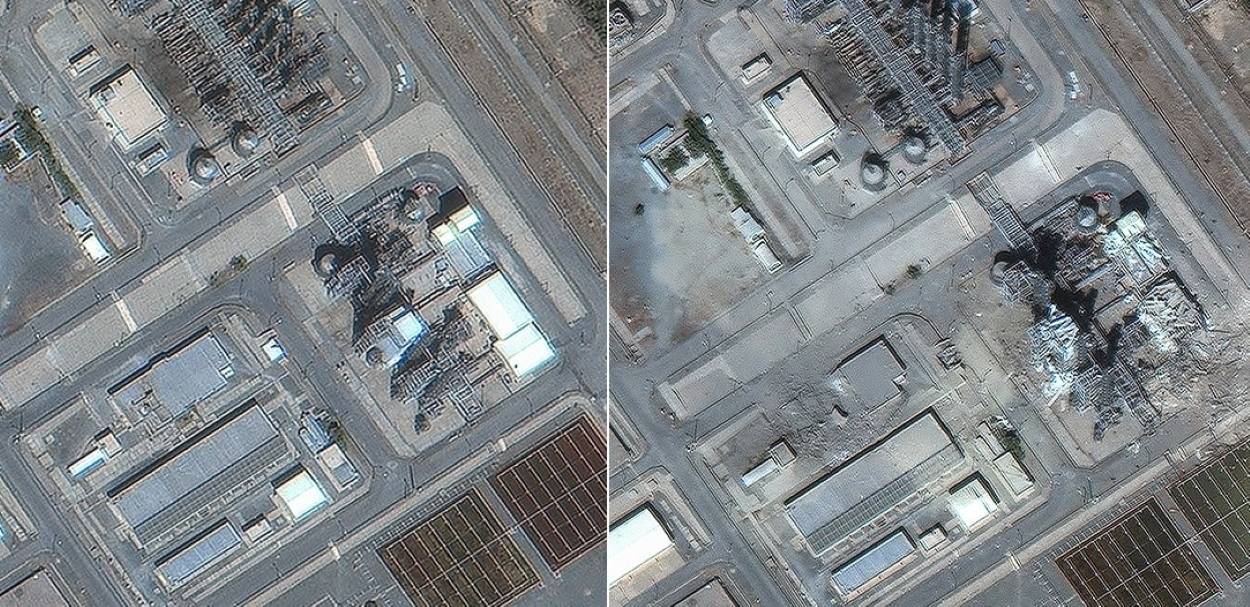A preliminary U.S. intelligence assessment revealed that US airstrikes on Iran’s nuclear facilities, conducted alongside a 12-day Israel-Iran conflict, have failed to destory the nuclear sites, however, it has only delayed Tehran’s nuclear program by just a few months, contradicting President Donald Trump’s claim that the program was “obliterated.” As a fragile ceasefire, brokered by Trump on June 24, 2025, took hold, both nations eased civilian restrictions, each claiming victory.
On June 22, 2025, the U.S. deployed 30,000-pound bombs targeting Iran’s uranium-enrichment facilities, with Trump asserting the strikes destroyed Iran’s nuclear capabilities. However, a Defence Intelligence Agency report, cited by three sources familiar with the matter, indicated the attacks sealed entrances to two facilities but left underground structures and some centrifuges intact.
Iran’s enriched uranium stocks remained, setting the program back by only one to two months, per one source quoted by the Washington Post. Iran maintains that its nuclear research is for civilian energy.
Breaking news: An initial U.S. intelligence report assesses that airstrikes ordered by President Donald Trump against Iran’s nuclear facilities set Tehran’s program back by months but did not eliminate it. https://t.co/XLDFYnC598
— The Washington Post (@washingtonpost) June 24, 2025The White House dismissed the assessment as “flat out wrong.” At the same time, Trump’s administration told the U.N. Security Council on June 24 that the strikes “degraded” Iran’s program, a softer claim than earlier assertions.
The ceasefire, announced at 0500 GMT on June 24, followed Trump’s public rebuke of both nations for violations, including alleged Israeli strikes on Iran. Iran’s President Masoud Pezeshkian declared a “great victory,” signalling readiness to resolve U.S. differences in talks with Saudi Crown Prince Mohammed bin Salman, per IRNA. Israeli Prime Minister Benjamin Netanyahu claimed the attacks eliminated “the threat of nuclear annihilation” and vowed to prevent Tehran from reviving its program.
The conflict began on June 13 with Israel’s surprise air war, targeting Iranian nuclear sites and killing key commanders, the worst blow to Iran since the 1980s Iraq war. Iran retaliated with missile barrages on Israeli targets.
JUST IN: Early intelligence from the Defense Intelligence Agency suggests that recent U.S. airstrikes on Iran’s nuclear facilities did not destroy the core of the program and likely delayed it by only a few months, CNN reported Tuesday. https://t.co/kzVW3XEN5i pic.twitter.com/b8WCmCZGbt
— Ground News (@Ground_app) June 24, 2025The intelligence assessment raises questions about the efficacy of U.S. and Israeli military strategies, as Iran works to restore its nuclear program, per Mohammad Eslami of Iran’s Atomic Energy Organisation. The ceasefire’s stability remains uncertain, with both sides posturing for leverage ahead of potential U.S.-Iran nuclear talks. The conflict’s end has eased oil market fears, but any escalation could disrupt global energy supplies, given Iran’s role in OPEC.
Read: U.S. Dropped 5-6 Bunker-Buster Bombs on Iran’s Fordow Nuclear Plant, Trump Says






